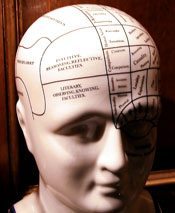by Marion Dane Bauer
[I]f you are interested in the neurological impact of reading, the journal Brain Connectivity published a paper “Short- and Long-Term Effects of a Novel on Connectivity in the Brain.” Basically, reading novels increases connectivity, stimulates the front temporal cortex and increases activity in areas of the brain associated with empathy and muscle memory. [Read the whole article.]
—Jennifer Michalicek on ChildLit
 It’s something we all know — all of us who are writers, readers, teachers know it, anyway — that reading fiction, engaging in the process of inhabiting another human being, feeling our way into another’s thoughts, feelings, desires, enlarges our hearts. It teaches us to understand those who are different from us. Equally important, if not more so, it lets us know that in the deepest possible ways we human beings are the same.
It’s something we all know — all of us who are writers, readers, teachers know it, anyway — that reading fiction, engaging in the process of inhabiting another human being, feeling our way into another’s thoughts, feelings, desires, enlarges our hearts. It teaches us to understand those who are different from us. Equally important, if not more so, it lets us know that in the deepest possible ways we human beings are the same.
We don’t need a study to tell us this is so, and yet I am grateful for such a study, and I would guess that you are, too. Long ago I knew teachers who had to close their classroom doors least the principal pass in the hall and discover them “wasting time” reading a story. And in these days of renewed emphasis on nonfiction, I would guess that attitude surfaces again more than occasionally.
Not to dismiss the importance of nonfiction. What better way to gather information, to increase our understanding of the world than through the fascinating, expressive nonfiction available today? But there is a larger understanding we owe our children — and ourselves, for that matter — than that which can be gained by comprehending facts. It is an understanding of ourselves as human beings.
How is it that story reveals so deeply? After all, the folks talking and acting, thinking and feeling on the page are fabrications created in some stranger’s mind. Our Puritan foreparents used to forbid the reading of novels, damning them as lies! And from a totally literal perspective, it is so.
But if a writer is creating truly, she is creating out of her own substance. She is creating out of the truth of who she is, what she knows about herself and about the people around her. (Forgive me for making all writers female. The he or she dance is burdensome.) If she is writing honestly, she is revealing on the page what she has allowed few others to know. In fact, she is probably exposing far more of herself than she herself realizes, because it is part of the magic of the writing of story that we are seduced into exposing even more than we may comprehend ourselves.
And that is the secret of the revelation of fiction. Those who create stories bring their hidden humanity to the writing. Those who read stories discover their own humanity in the reading
… and learn to extend that humanity beyond the confines of their own skins.
What deeper learning can there be from the written word?
A mechanical study of the brain isn’t needed to understand any of this. But it’s a marvel of our times that such a study is possible, that what most of us know in our hearts can now be proven.
I hope this new understanding makes it possible for every classroom door to stand wide open while such learning takes place.

Thanks, Marion, for this heartfelt and savvy response to the study. How nice when science supports what we already know to be true!